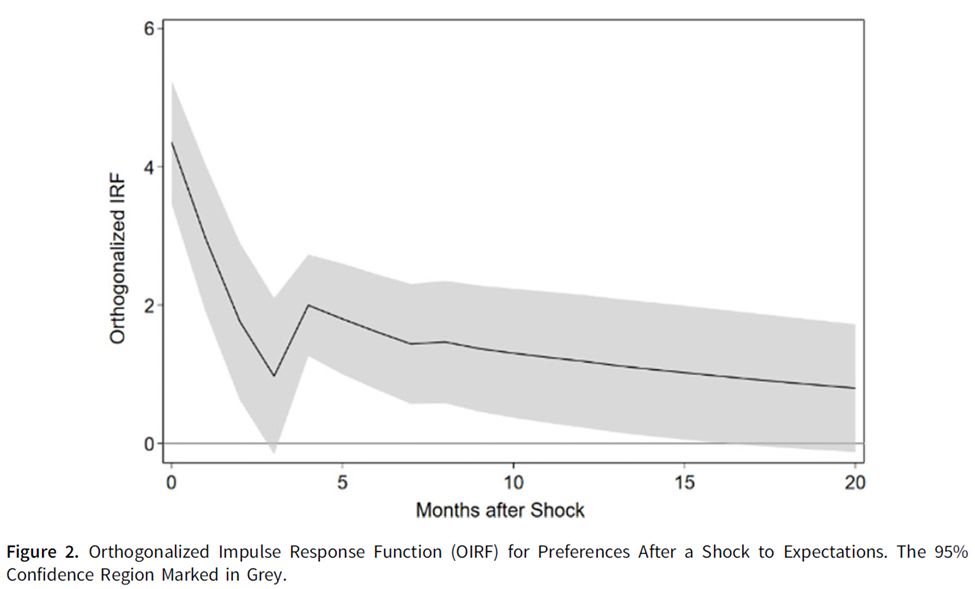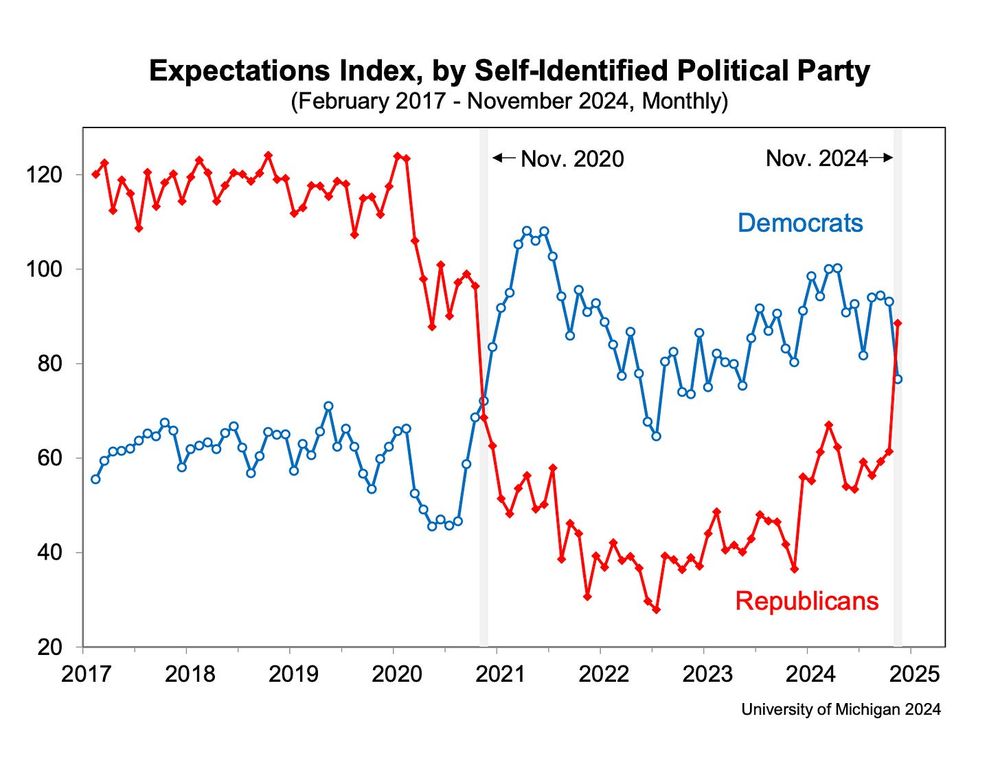Alon Yakter
@ayakter.bsky.social
Political science faculty @ Tel Aviv University
We find both shocks shifted support for compromise in the expected negative/positive direction. Further, this happened across left- and right-wing voters. Thus, our findings challenge the idea that political beliefs are immovable in intractable conflicts. They can move - when people expect change.

August 8, 2025 at 11:21 AM
We find both shocks shifted support for compromise in the expected negative/positive direction. Further, this happened across left- and right-wing voters. Thus, our findings challenge the idea that political beliefs are immovable in intractable conflicts. They can move - when people expect change.
First, using a time-series VAR model, we find evidence that aggregate expectations Granger-cause preferences but not the other way around. That is, Israeli-Jewish public opinion becomes more supportive of diplomacy & compromise after popular expectations for peace grow, not vice versa.


August 8, 2025 at 11:21 AM
First, using a time-series VAR model, we find evidence that aggregate expectations Granger-cause preferences but not the other way around. That is, Israeli-Jewish public opinion becomes more supportive of diplomacy & compromise after popular expectations for peace grow, not vice versa.
This argument is grimmer, implying a negative equilibrium where pessimism & hawkishness reinforce one another, blocking ppl’s receptiveness to signals of a better future. With this in mind, we analyze multi-decade survey data on Israeli Jews to see which precedes which, expectations or preferences.

August 8, 2025 at 11:21 AM
This argument is grimmer, implying a negative equilibrium where pessimism & hawkishness reinforce one another, blocking ppl’s receptiveness to signals of a better future. With this in mind, we analyze multi-decade survey data on Israeli Jews to see which precedes which, expectations or preferences.
Yet this claim is challenged by theories of "Motivated Reasoning": strong partisan preferences, as is often the case in violent conflicts, motivate us to interpret reality and future scenarios so they fit our pre-existing views (e.g., famously, Americans’ views of the economy).

August 8, 2025 at 11:21 AM
Yet this claim is challenged by theories of "Motivated Reasoning": strong partisan preferences, as is often the case in violent conflicts, motivate us to interpret reality and future scenarios so they fit our pre-existing views (e.g., famously, Americans’ views of the economy).
Bred for its skills in magic.

February 27, 2025 at 5:26 PM
Bred for its skills in magic.

